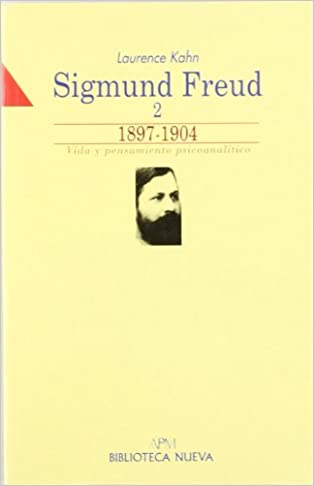Ir al contenido
Resultados de la búsqueda para: Freud Sigmund
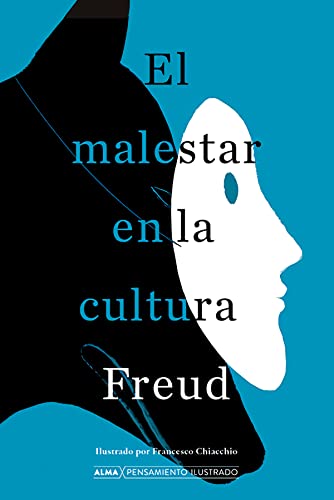

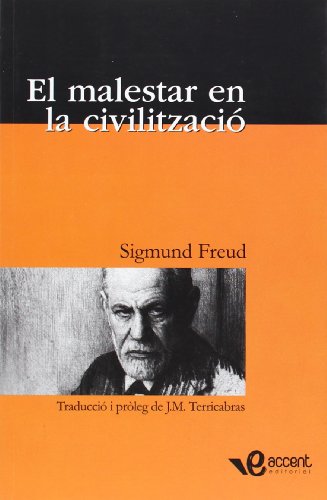

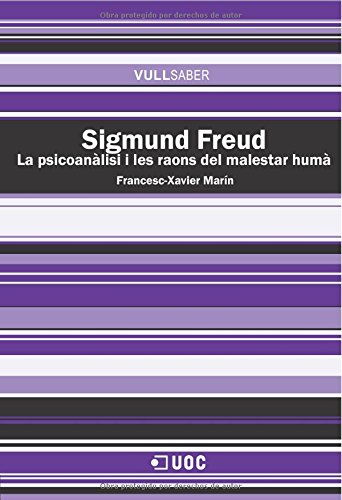

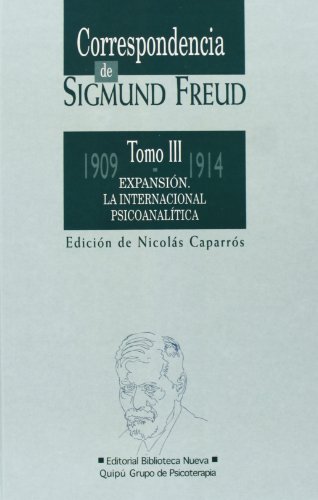

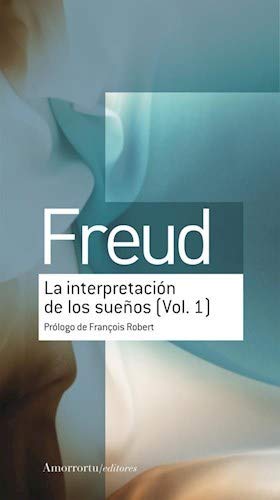

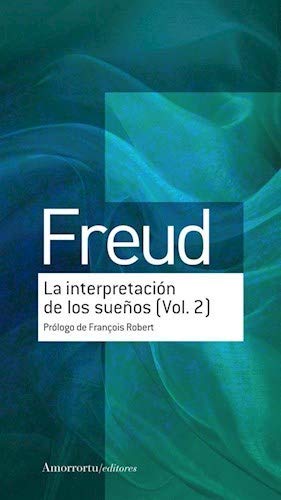

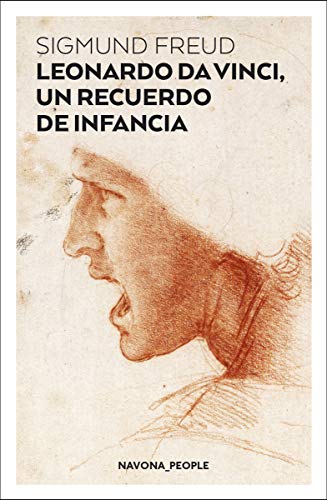

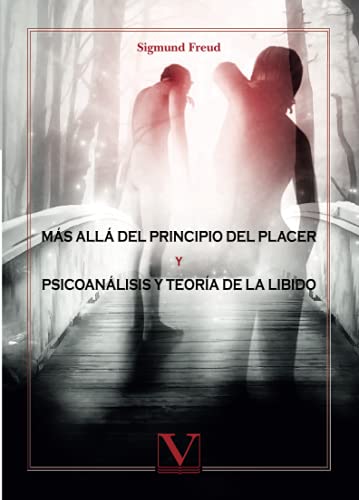

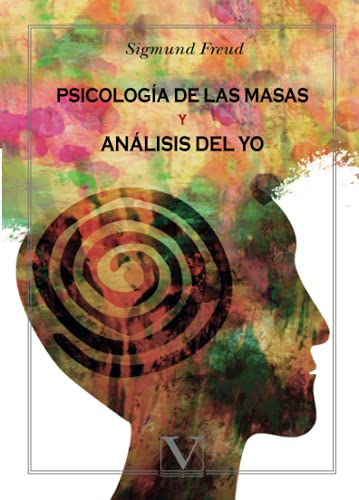

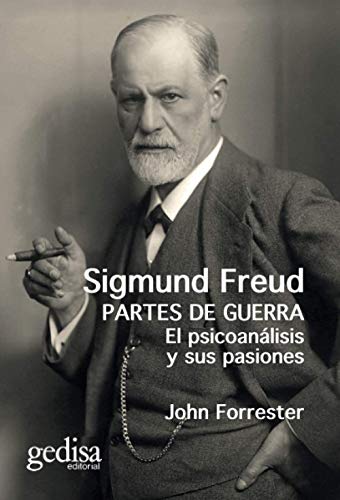

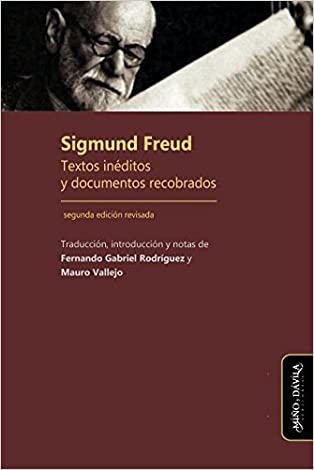 El caso Nina', la enuresis infantil, la aplicación de la hipnosis para corregir la sordomudez. He allí algunas de las nuevas entradas que este libro impone al siempre incompleto tesauro freudiano. Este volumen contiene la traducción al español de materiales autógrafos de Sigmund Freud que no figuran en ninguna de las ediciones de sus mal llamadas Obras Completas, con el agregado de algunas reseñas sobre conferencias que brindara en la Viena de fin del siglo XIX. Junto con recuperar esos documentos de carácter muchas veces fragmentario (historiales clínicos, borradores, respuestas a cuestionarios), esta compilación aspira a formar un mosaico articulado, capaz de brindar una nueva comprensión de la génesis y transformación del pensamiento del célebre psicoanalista. Se trata de textos que invitan a examinar una vez más, y quizá desde un ángulo dislocado, los hitos de un trayecto intelectual que, caso omiso hecho de inclinaciones y controversias de escuela, no es posible soslayar en la historia de las ideas del siglo XX. Este trayecto parte de un joven neurólogo que, amén de confesarse charcotiano, hacía un uso entusiasta o fascinado de la hipnosis (o del opio); pasa por el clínico que, consciente de las insuficiencias de la formación recibida, acuñó una teoría cabalmente psicógena de las enfermedades nerviosas; y desemboca en el teórico maduro que desembozadamente especuló sobre el impacto transgeneracional de las glaciaciones. Suponer que ese trayecto dibuja una línea progresiva, que carecería de retornos extemporáneos o sedimentaciones opacas, sería dar la espalda a la temporalidad que alguna vez Freud fundó gracias a su teoría. La obra combina una tarea de recuperación con otra de restauración. Algunos materiales han sido fraguados a partir de contenidos conservados partes extra partes en fuentes dispersas. Como afirman los traductores: Hay que decir, sin envanecimiento, que tampoco los lectores de lengua alemana disponen de todo lo reunido en nuestra selección. 10
El caso Nina', la enuresis infantil, la aplicación de la hipnosis para corregir la sordomudez. He allí algunas de las nuevas entradas que este libro impone al siempre incompleto tesauro freudiano. Este volumen contiene la traducción al español de materiales autógrafos de Sigmund Freud que no figuran en ninguna de las ediciones de sus mal llamadas Obras Completas, con el agregado de algunas reseñas sobre conferencias que brindara en la Viena de fin del siglo XIX. Junto con recuperar esos documentos de carácter muchas veces fragmentario (historiales clínicos, borradores, respuestas a cuestionarios), esta compilación aspira a formar un mosaico articulado, capaz de brindar una nueva comprensión de la génesis y transformación del pensamiento del célebre psicoanalista. Se trata de textos que invitan a examinar una vez más, y quizá desde un ángulo dislocado, los hitos de un trayecto intelectual que, caso omiso hecho de inclinaciones y controversias de escuela, no es posible soslayar en la historia de las ideas del siglo XX. Este trayecto parte de un joven neurólogo que, amén de confesarse charcotiano, hacía un uso entusiasta o fascinado de la hipnosis (o del opio); pasa por el clínico que, consciente de las insuficiencias de la formación recibida, acuñó una teoría cabalmente psicógena de las enfermedades nerviosas; y desemboca en el teórico maduro que desembozadamente especuló sobre el impacto transgeneracional de las glaciaciones. Suponer que ese trayecto dibuja una línea progresiva, que carecería de retornos extemporáneos o sedimentaciones opacas, sería dar la espalda a la temporalidad que alguna vez Freud fundó gracias a su teoría. La obra combina una tarea de recuperación con otra de restauración. Algunos materiales han sido fraguados a partir de contenidos conservados partes extra partes en fuentes dispersas. Como afirman los traductores: Hay que decir, sin envanecimiento, que tampoco los lectores de lengua alemana disponen de todo lo reunido en nuestra selección. 10
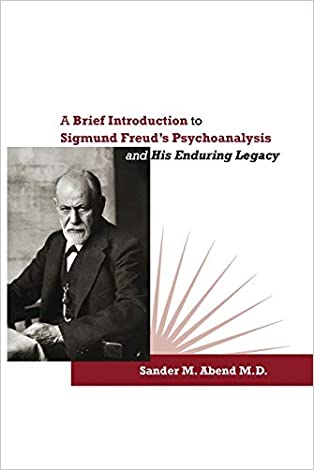 Abend applies his considerable psychoanalytic scholarship, as well as his long clinical experience, to making a thorough, careful, and complete presentation of Freud’s essential ideas-- which is something not to be taken for granted: important elements of Freud’s work are all too often misunderstood or overlooked elsewhere. Abend never talks down to the reader; he does not shy away from detail and complexity. At the same time, he makes his presentation clearly and with a deceptive simplicity, so that it is always easy reading. Abend’s format is to trace the historic unfolding of Freud’s thinking. This is, again, a difficult task which is rarely accomplished with complete success, because of the many twists and turns Freud’s thinking took, not to mention the incompletions and even contradictions that Freud left standing. Abend gracefully unties the knots and connects the dots, permitting the reader to appreciate Freud’s consistent ulterior logic. Abend makes the well judged choice to take up only those developments in psychoanalysis following Freud that have remained directly in line with Freud’s thought. It is, of course, very much in keeping with the psychoanalytic understanding that what comes first has a profound influence upon what comes after to make as complete as possible a study of the elaboration that has taken place of the principles originally articulated by Freud before studying divergences and departures from those principles. As Abend emphasizes, judgments about what is and what is not truly Freudian are bound to be controversial. Confronted with the necessity to make difficult choices, Abend’s distinguished scholarship shines in his discussion of post-Freudian Freudianism. He offers neither too much nor too little, and shows that it is all of a piece. Abend has done justice to Freud’s enduring legacy. Readers of this book are given the very valuable opportunity to learn what that legacy is and why it has endured.
Abend applies his considerable psychoanalytic scholarship, as well as his long clinical experience, to making a thorough, careful, and complete presentation of Freud’s essential ideas-- which is something not to be taken for granted: important elements of Freud’s work are all too often misunderstood or overlooked elsewhere. Abend never talks down to the reader; he does not shy away from detail and complexity. At the same time, he makes his presentation clearly and with a deceptive simplicity, so that it is always easy reading. Abend’s format is to trace the historic unfolding of Freud’s thinking. This is, again, a difficult task which is rarely accomplished with complete success, because of the many twists and turns Freud’s thinking took, not to mention the incompletions and even contradictions that Freud left standing. Abend gracefully unties the knots and connects the dots, permitting the reader to appreciate Freud’s consistent ulterior logic. Abend makes the well judged choice to take up only those developments in psychoanalysis following Freud that have remained directly in line with Freud’s thought. It is, of course, very much in keeping with the psychoanalytic understanding that what comes first has a profound influence upon what comes after to make as complete as possible a study of the elaboration that has taken place of the principles originally articulated by Freud before studying divergences and departures from those principles. As Abend emphasizes, judgments about what is and what is not truly Freudian are bound to be controversial. Confronted with the necessity to make difficult choices, Abend’s distinguished scholarship shines in his discussion of post-Freudian Freudianism. He offers neither too much nor too little, and shows that it is all of a piece. Abend has done justice to Freud’s enduring legacy. Readers of this book are given the very valuable opportunity to learn what that legacy is and why it has endured.
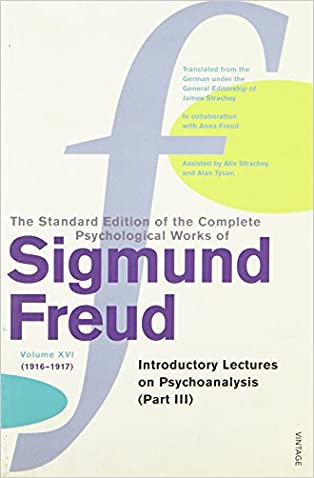











 El caso Nina', la enuresis infantil, la aplicación de la hipnosis para corregir la sordomudez. He allí algunas de las nuevas entradas que este libro impone al siempre incompleto tesauro freudiano. Este volumen contiene la traducción al español de materiales autógrafos de Sigmund Freud que no figuran en ninguna de las ediciones de sus mal llamadas Obras Completas, con el agregado de algunas reseñas sobre conferencias que brindara en la Viena de fin del siglo XIX. Junto con recuperar esos documentos de carácter muchas veces fragmentario (historiales clínicos, borradores, respuestas a cuestionarios), esta compilación aspira a formar un mosaico articulado, capaz de brindar una nueva comprensión de la génesis y transformación del pensamiento del célebre psicoanalista. Se trata de textos que invitan a examinar una vez más, y quizá desde un ángulo dislocado, los hitos de un trayecto intelectual que, caso omiso hecho de inclinaciones y controversias de escuela, no es posible soslayar en la historia de las ideas del siglo XX. Este trayecto parte de un joven neurólogo que, amén de confesarse charcotiano, hacía un uso entusiasta o fascinado de la hipnosis (o del opio); pasa por el clínico que, consciente de las insuficiencias de la formación recibida, acuñó una teoría cabalmente psicógena de las enfermedades nerviosas; y desemboca en el teórico maduro que desembozadamente especuló sobre el impacto transgeneracional de las glaciaciones. Suponer que ese trayecto dibuja una línea progresiva, que carecería de retornos extemporáneos o sedimentaciones opacas, sería dar la espalda a la temporalidad que alguna vez Freud fundó gracias a su teoría. La obra combina una tarea de recuperación con otra de restauración. Algunos materiales han sido fraguados a partir de contenidos conservados partes extra partes en fuentes dispersas. Como afirman los traductores: Hay que decir, sin envanecimiento, que tampoco los lectores de lengua alemana disponen de todo lo reunido en nuestra selección. 10
El caso Nina', la enuresis infantil, la aplicación de la hipnosis para corregir la sordomudez. He allí algunas de las nuevas entradas que este libro impone al siempre incompleto tesauro freudiano. Este volumen contiene la traducción al español de materiales autógrafos de Sigmund Freud que no figuran en ninguna de las ediciones de sus mal llamadas Obras Completas, con el agregado de algunas reseñas sobre conferencias que brindara en la Viena de fin del siglo XIX. Junto con recuperar esos documentos de carácter muchas veces fragmentario (historiales clínicos, borradores, respuestas a cuestionarios), esta compilación aspira a formar un mosaico articulado, capaz de brindar una nueva comprensión de la génesis y transformación del pensamiento del célebre psicoanalista. Se trata de textos que invitan a examinar una vez más, y quizá desde un ángulo dislocado, los hitos de un trayecto intelectual que, caso omiso hecho de inclinaciones y controversias de escuela, no es posible soslayar en la historia de las ideas del siglo XX. Este trayecto parte de un joven neurólogo que, amén de confesarse charcotiano, hacía un uso entusiasta o fascinado de la hipnosis (o del opio); pasa por el clínico que, consciente de las insuficiencias de la formación recibida, acuñó una teoría cabalmente psicógena de las enfermedades nerviosas; y desemboca en el teórico maduro que desembozadamente especuló sobre el impacto transgeneracional de las glaciaciones. Suponer que ese trayecto dibuja una línea progresiva, que carecería de retornos extemporáneos o sedimentaciones opacas, sería dar la espalda a la temporalidad que alguna vez Freud fundó gracias a su teoría. La obra combina una tarea de recuperación con otra de restauración. Algunos materiales han sido fraguados a partir de contenidos conservados partes extra partes en fuentes dispersas. Como afirman los traductores: Hay que decir, sin envanecimiento, que tampoco los lectores de lengua alemana disponen de todo lo reunido en nuestra selección. 10 Abend applies his considerable psychoanalytic scholarship, as well as his long clinical experience, to making a thorough, careful, and complete presentation of Freud’s essential ideas-- which is something not to be taken for granted: important elements of Freud’s work are all too often misunderstood or overlooked elsewhere. Abend never talks down to the reader; he does not shy away from detail and complexity. At the same time, he makes his presentation clearly and with a deceptive simplicity, so that it is always easy reading. Abend’s format is to trace the historic unfolding of Freud’s thinking. This is, again, a difficult task which is rarely accomplished with complete success, because of the many twists and turns Freud’s thinking took, not to mention the incompletions and even contradictions that Freud left standing. Abend gracefully unties the knots and connects the dots, permitting the reader to appreciate Freud’s consistent ulterior logic. Abend makes the well judged choice to take up only those developments in psychoanalysis following Freud that have remained directly in line with Freud’s thought. It is, of course, very much in keeping with the psychoanalytic understanding that what comes first has a profound influence upon what comes after to make as complete as possible a study of the elaboration that has taken place of the principles originally articulated by Freud before studying divergences and departures from those principles. As Abend emphasizes, judgments about what is and what is not truly Freudian are bound to be controversial. Confronted with the necessity to make difficult choices, Abend’s distinguished scholarship shines in his discussion of post-Freudian Freudianism. He offers neither too much nor too little, and shows that it is all of a piece. Abend has done justice to Freud’s enduring legacy. Readers of this book are given the very valuable opportunity to learn what that legacy is and why it has endured.
Abend applies his considerable psychoanalytic scholarship, as well as his long clinical experience, to making a thorough, careful, and complete presentation of Freud’s essential ideas-- which is something not to be taken for granted: important elements of Freud’s work are all too often misunderstood or overlooked elsewhere. Abend never talks down to the reader; he does not shy away from detail and complexity. At the same time, he makes his presentation clearly and with a deceptive simplicity, so that it is always easy reading. Abend’s format is to trace the historic unfolding of Freud’s thinking. This is, again, a difficult task which is rarely accomplished with complete success, because of the many twists and turns Freud’s thinking took, not to mention the incompletions and even contradictions that Freud left standing. Abend gracefully unties the knots and connects the dots, permitting the reader to appreciate Freud’s consistent ulterior logic. Abend makes the well judged choice to take up only those developments in psychoanalysis following Freud that have remained directly in line with Freud’s thought. It is, of course, very much in keeping with the psychoanalytic understanding that what comes first has a profound influence upon what comes after to make as complete as possible a study of the elaboration that has taken place of the principles originally articulated by Freud before studying divergences and departures from those principles. As Abend emphasizes, judgments about what is and what is not truly Freudian are bound to be controversial. Confronted with the necessity to make difficult choices, Abend’s distinguished scholarship shines in his discussion of post-Freudian Freudianism. He offers neither too much nor too little, and shows that it is all of a piece. Abend has done justice to Freud’s enduring legacy. Readers of this book are given the very valuable opportunity to learn what that legacy is and why it has endured.
